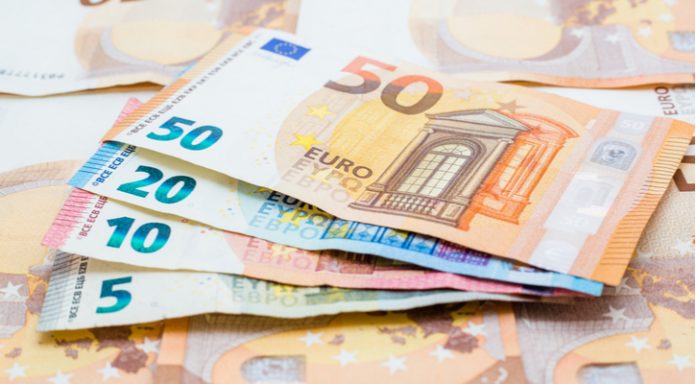- Euro (EUR) shrugs off rising covid cases & risks to economy
- ECB could ease policy further next week
- US Dollar (USD) eases on safe haven outflows as stimulus optimism rises
- AstraZeneca could restart US covid vaccine trial in days
The Euro US Dollar (EUR/USD) exchange rate is pushing higher on Wednesday for a fourth straight session. The pair settled +0.5% higher at US$1.1821 in the previous session, towards the upper end of the daily traded range. At 07:15 UTC, EUR/USD trades +0.3% at US$1.1855, again towards the top end of the daily range.
The US Dollar is trending lower versus its major peers amid rising stimulus optimism. As the White House and Congress move closer towards a new covid rescue package demand for riskier assets has picked up whilst the safe haven US Dollar is coming under pressure. With Trump saying that he is prepared to accept a larger bill, talks will continue past House Speaker Nancy Pelosi’s soft Tuesday deadline. Nancy Pelosi said that she is hopeful of a deal being achieved before the US elections in under 2 weeks’ time.
Adding to the upbeat mood in the market was news that AstaZeneca could be allowed to restart its covid vaccine candidate trial in the US in the coming days. The trial was paused globally on safety concerns, although restarted everywhere expect the US a few weeks ago.
There is little in the way of economic data to drive the US Dollar, meaning that sentiment and politics will remain in the driving seat.
An upbeat mood in the market is lifting the Euro helping it shrug off concerns over the rising covid cases and tightening lockdown restrictions. European Central Bank President Christine Lagarde highlighted in a speech yesterday that the unexpected early pick up of covid cases is a clear risk to the economic outlook. Scientists had been expecting a resurgence in November or December. Her remarks come ahead of the ECB monetary policy announcement next week.
There are growing expectations that the ECB could look to ease monetary policy further in order to support the region’s economy. Inflation in the Eurozone remains depressed at -0.3% in September, down from -0.2% in August.





